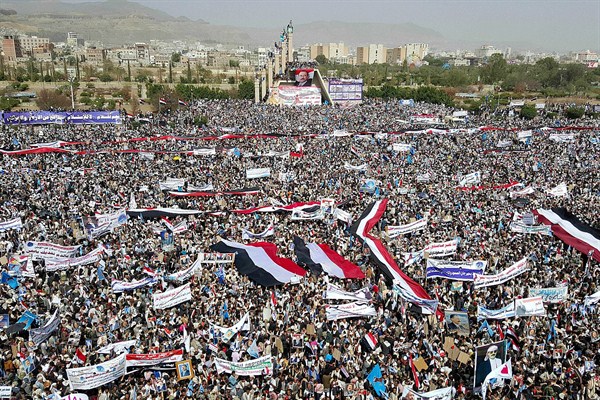Good news has been in desperately short supply in Yemen over the past year. So reports of a U.N.-brokered cease-fire and peace talks aimed at bringing an end to a civil war that has devastated what was already the Arab world’s poorest country should have been well received. Instead, they were met with skepticism, and with good reason. After a year of brutal war, Yemen is hardly ripe for peace.
Last week in New York, the U.N. Special Envoy for Yemen, Ismail Ould Cheikh Ahmed, announced that the “parties to the conflict” had agreed to a countrywide cease-fire, due to begin on April 10, and that peace talks would resume in Kuwait on April 18. An inconclusive first round of peace talks were held in Switzerland in December 2015; an earlier attempt at talks in June of 2015 ended in acrimony before delegates had met face-to-face.
There is some cause for limited optimism this time around. Ould Cheikh Ahmed’s announcement follows news that the Houthis—the Zaydi Shiite revivalist movement-turned-militia that took over the Yemeni capital, Sanaa, in September 2014—have entered into direct talks with Saudi Arabia, which has been leading the campaign to oust them. In a sign of progress, the Houthis and the Saudis agreed to a prisoner swap earlier this week.

